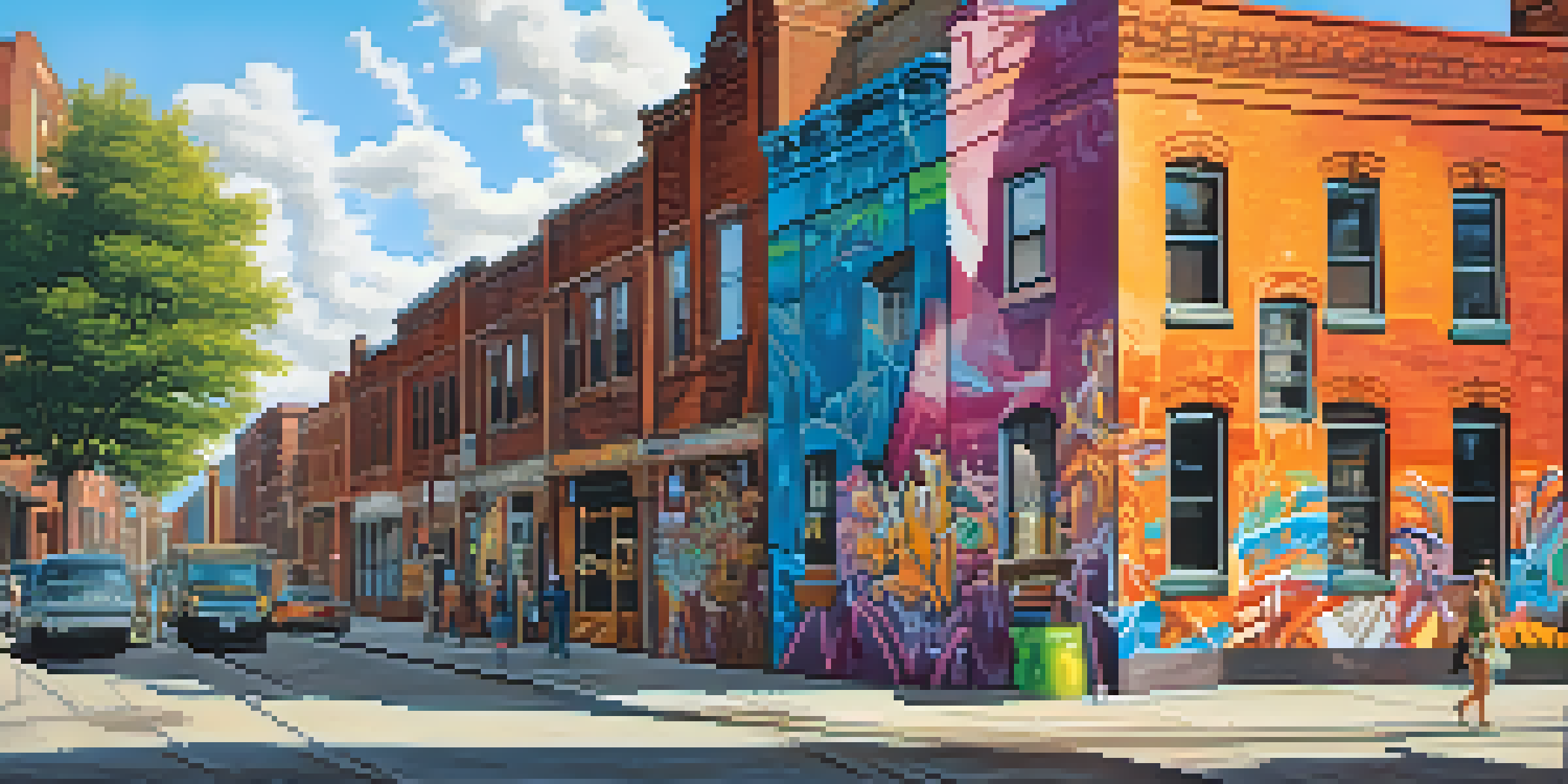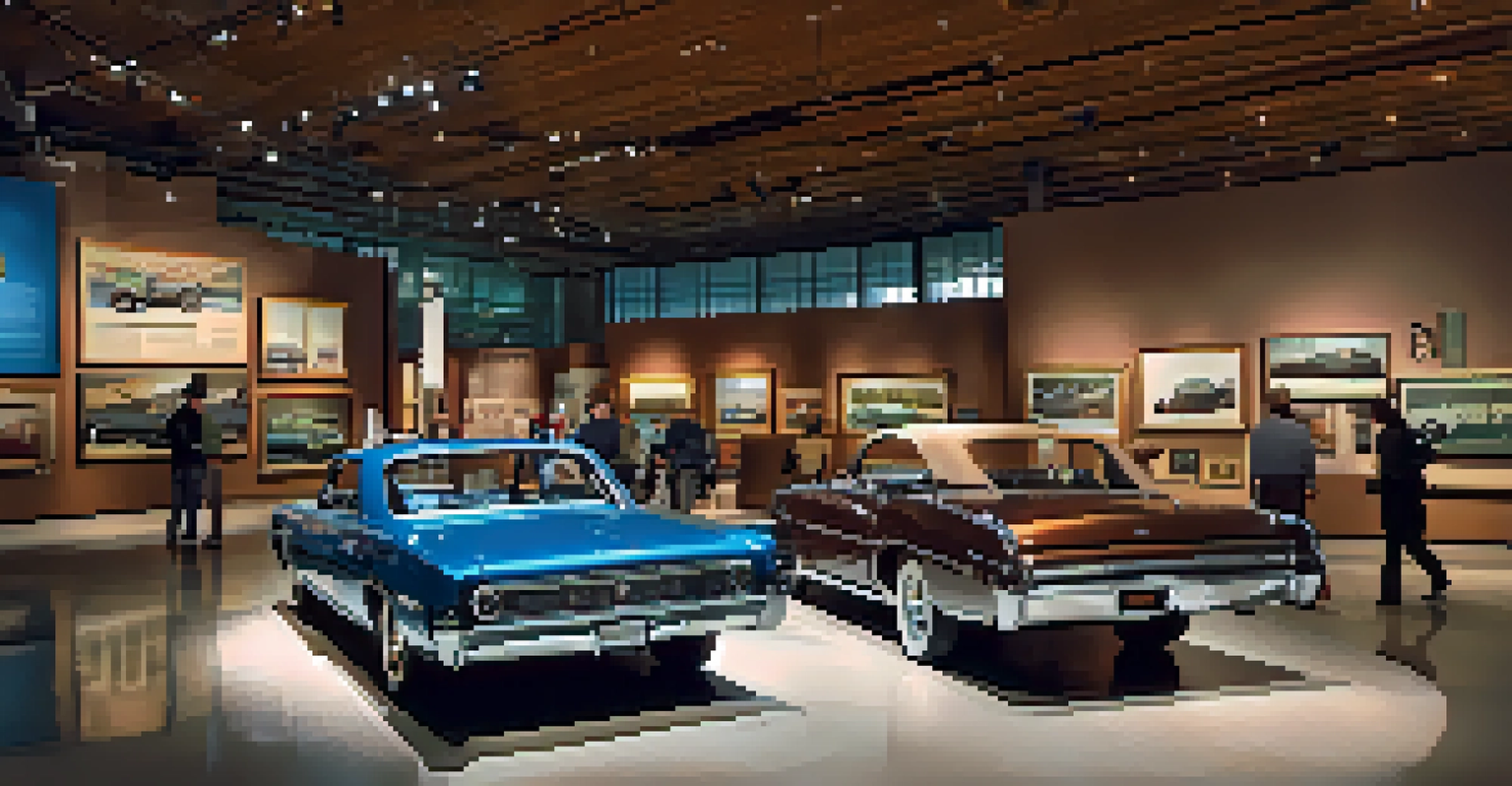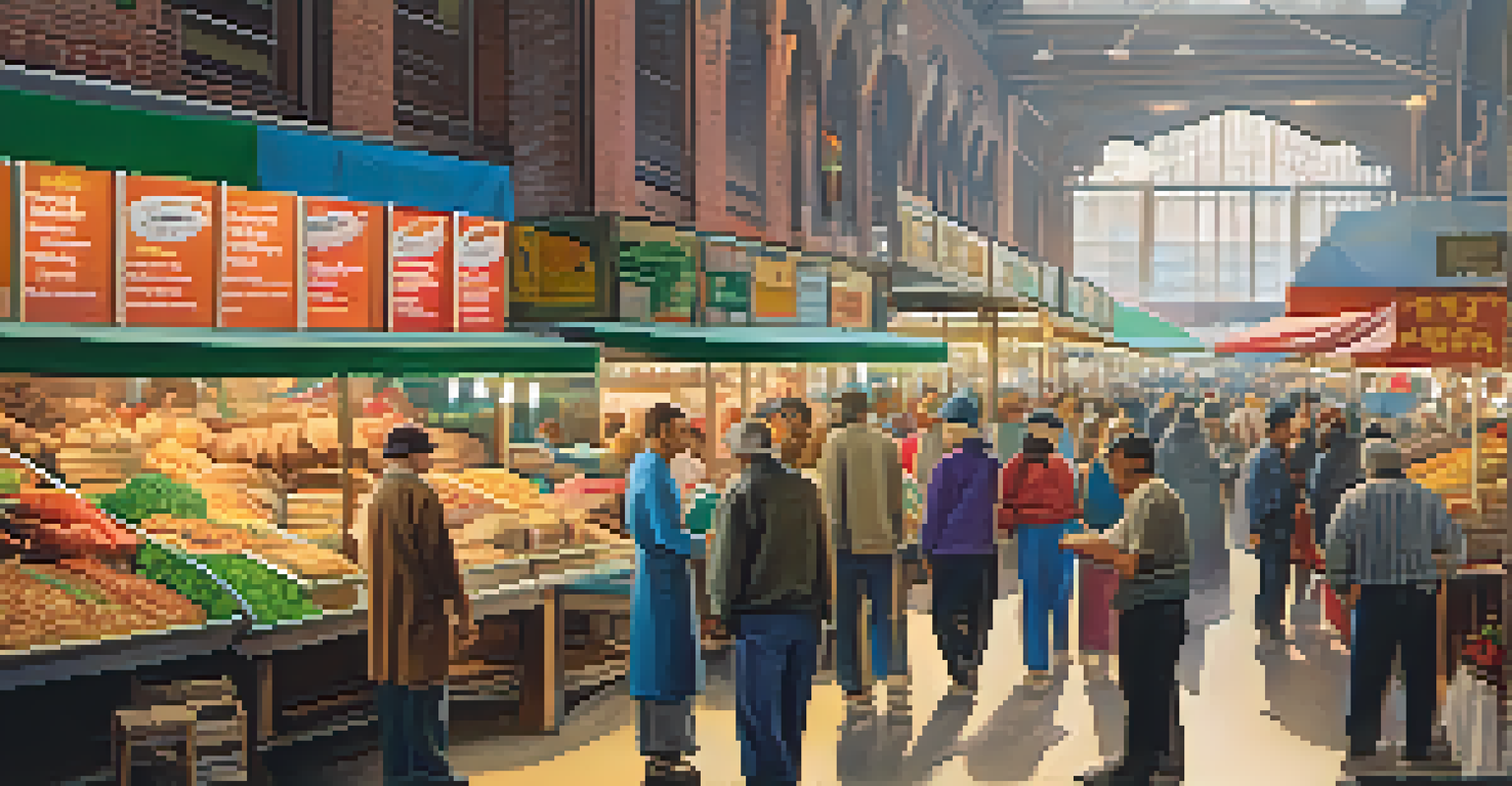Cultural Institutions in Detroit: Bridging Tradition and Modernity

The Legacy of Detroit's Historical Institutions
Detroit is home to a rich tapestry of cultural institutions that reflect its storied history. From the Detroit Institute of Arts to the Henry Ford Museum, these venues preserve and celebrate the city's unique heritage. They serve as reminders of the past while providing a foundation for future generations to build upon. This legacy is not just about artifacts; it’s about the stories and communities that shaped Detroit.
Detroit is where the future is, because it's where the past is.
One of the most significant institutions is the Detroit Historical Museum, which captures the essence of the city's evolution. Through engaging exhibits and interactive displays, visitors can explore Detroit's journey from its founding to its role in the automotive industry. This institution plays a vital role in educating both locals and tourists about the city’s vibrant past.
Moreover, these historical institutions actively engage with the community through programs and events. They invite people to connect with history in meaningful ways, fostering a sense of pride and belonging. It’s this blend of education and engagement that makes Detroit's cultural landscape so compelling.
Contemporary Art Scene: A Fusion of Styles
Detroit's contemporary art scene has blossomed, showcasing a fusion of traditional and modern styles. Galleries like the Museum of Contemporary Art Detroit (MOCAD) highlight innovative works from local and international artists. This vibrant scene attracts a diverse audience and encourages dialogue about current social issues through art.

Artists in Detroit often draw inspiration from the city's industrial past while embracing modern techniques and themes. For instance, muralists transform neglected urban spaces into canvases that tell stories of resilience and hope. This blending of tradition with contemporary expression reflects the dynamic nature of the city itself.
Detroit's Rich Cultural Legacy
The city's historical institutions preserve and celebrate its unique heritage, connecting past stories to future generations.
Moreover, events such as the Detroit Design Festival and the Detroit Art Week celebrate this creativity. They provide platforms for artists to showcase their work while engaging the community in discussions about art's role in society. As a result, Detroit is not just preserving its artistic heritage; it’s actively redefining it.
Music: The Heartbeat of Detroit's Culture
Music is a profound part of Detroit's cultural identity, with roots that stretch deep into its history. From Motown to techno, the city's musical legacy is celebrated through various cultural institutions and festivals. These venues not only honor the past but also foster new talent and genres, keeping the spirit of Detroit alive.
The city is more than the city itself; it’s the people inside it that define it.
The Motown Museum, located in the original Hitsville U.S.A. studio, offers a nostalgic journey through the sounds that defined a generation. Visitors can learn about iconic artists like Stevie Wonder and Diana Ross while experiencing the magic of music production. This institution serves as both a museum and a tribute to the influence of Detroit on global music.
Additionally, modern venues like the Fox Theatre and the Fillmore Detroit continue to host a range of performances, from classical concerts to contemporary shows. These spaces reflect the ongoing evolution of Detroit’s music scene, ensuring that the city remains a vital player in the arts. Through music, Detroit connects its rich past with a vibrant present.
Culinary Arts: A Taste of Detroit's Diversity
Detroit's culinary scene is a delicious reflection of its cultural diversity, merging traditions from various backgrounds. From its famous deep-dish pizza to soul food and Middle Eastern cuisine, the city's food offerings tell the stories of its communities. Cultural institutions play a vital role in showcasing this gastronomic heritage through festivals and events.
The Detroit Historical Society often hosts events that highlight the city’s culinary evolution, inviting local chefs to share their stories and dishes. These gatherings not only educate participants about Detroit's food history but also celebrate the chefs who keep these traditions alive. It's a tasty way to connect with the city's roots.
Vibrant Contemporary Art Scene
Detroit's contemporary art landscape blends traditional and modern styles, fostering creativity and dialogue on social issues.
Moreover, the rise of food markets, such as the Detroit Shipping Company, emphasizes the modern twist on traditional cuisine. They provide platforms for local vendors to showcase their culinary creativity while fostering a sense of community. This blend of tradition and innovation makes Detroit's culinary scene a vital part of its cultural fabric.
The Role of Education in Cultural Preservation
Education is a key component in bridging tradition and modernity within Detroit's cultural institutions. Many museums and galleries offer educational programs for schools and the community, ensuring that knowledge about the city’s rich heritage is passed down. These programs foster a deeper understanding of the arts, history, and culture.
For example, the Detroit Institute of Arts provides resources for teachers to incorporate art into their curricula. This initiative not only enhances student learning but also encourages appreciation for the cultural significance of the arts. By engaging young minds, these institutions are cultivating the next generation of artists and historians.
Additionally, partnerships between cultural institutions and local schools promote accessibility and inclusivity. They often host workshops, lectures, and interactive experiences that make art and history relatable. This commitment to education strengthens the community's connection to its cultural heritage while embracing modern educational methods.
Community Engagement: Building Connections
Community engagement is at the forefront of many cultural institutions in Detroit, emphasizing the importance of local participation. These institutions host events, workshops, and festivals that invite residents to share their stories and experiences. This creates a sense of ownership and pride in the city's cultural narrative.
For instance, the Detroit Institute of Arts frequently collaborates with local artists to create exhibitions that reflect the community's diverse perspectives. This approach not only highlights local talent but also fosters dialogue about cultural identity and expression. It’s a way to ensure that everyone has a voice in shaping the city's cultural landscape.
Community Engagement Drives Culture
Local participation in cultural events and programming strengthens community bonds and ensures diverse voices shape Detroit's narrative.
Moreover, events like the Detroit Festival of the Arts bring together community members from all walks of life. They celebrate the city's vibrant creativity while encouraging collaboration between artists and local residents. This spirit of engagement strengthens community bonds and reinforces the idea that culture is a shared experience.
Future Directions: Innovation and Adaptation
As Detroit's cultural institutions navigate the future, innovation and adaptation are key themes. Many are embracing technology to enhance visitor experiences, from virtual tours to interactive exhibits. This evolution ensures that institutions remain relevant and accessible to a younger audience.
Moreover, there is a growing emphasis on sustainability within these institutions, reflecting broader societal changes. Initiatives aimed at reducing environmental impact are becoming more common, from using eco-friendly materials in exhibitions to promoting local artists who focus on sustainability. This progressive mindset aligns with the values of many in the community.

Additionally, collaborations between cultural institutions and tech companies are emerging, creating new opportunities for creative expression. By harnessing the power of technology, Detroit's cultural landscape is poised to thrive in the modern age. This blend of tradition and innovation promises a bright future for the city's rich cultural heritage.